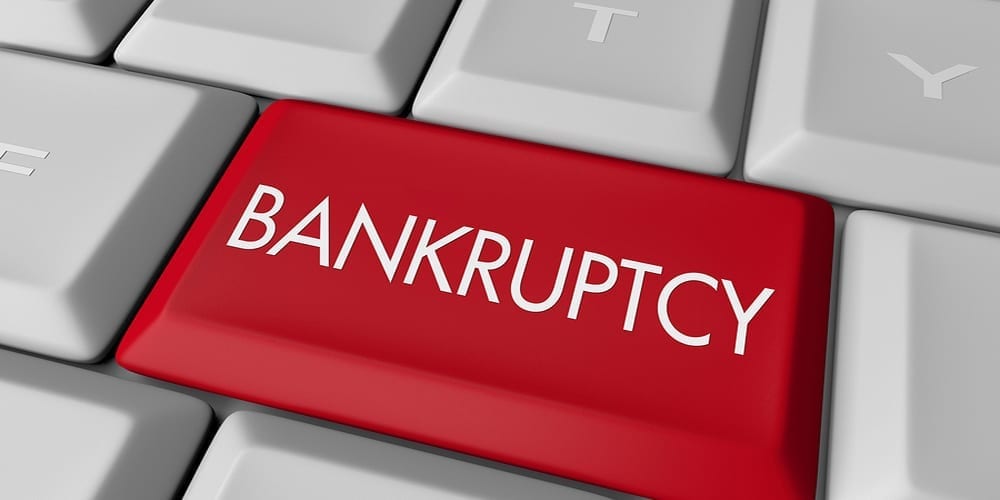I used to think bankruptcy was something that happened to reckless people or businesses in disaster mode. But the more I’ve learned—and the more people I’ve talked to—the clearer it’s become: bankruptcy is often a last resort made after a series of really tough financial decisions.
It’s not something to take lightly, but it’s also not the end of the road.
Whether you’re considering filing or just trying to understand what it means, let’s talk about the real financial repercussions of bankruptcy, and what life looks like on the other side.
💼 What Is Bankruptcy?

Bankruptcy is a legal process that allows individuals or businesses to eliminate or repay debts under the protection of the bankruptcy court. It’s often used when a person can no longer keep up with bills, and other options—like budgeting, consolidation, or negotiating—haven’t worked.
In the U.S., most personal bankruptcies fall under two types:
-
Chapter 7 – Liquidation: most debts are wiped out, but some assets may be sold
-
Chapter 13 – Reorganization: you create a repayment plan to pay off some or all debts over time
⚖️ What Happens When You File for Bankruptcy?
Here’s a basic idea of what to expect:
-
You’ll work with a bankruptcy attorney (recommended, though not always required)
-
You must complete credit counseling before filing
-
You file paperwork listing assets, debts, income, and expenses
-
The court issues a stay, stopping creditors from collecting
-
Depending on the chapter, debts are either discharged or reorganized
-
A bankruptcy trustee may sell some assets (Chapter 7) or oversee your repayment plan (Chapter 13)
It’s not fast and it’s not fun—but for many people, it brings real relief and a fresh start.
💸 The Financial Repercussions of Bankruptcy
Okay—here’s where we get real. Bankruptcy has major consequences, but understanding them can help you make informed decisions.
1. 📉 Credit Score Drop
Your credit score will likely take a big hit—often dropping 130–200 points or more, depending on your starting point.
-
Chapter 7 stays on your report for 10 years
-
Chapter 13 stays for 7 years
That said, if your credit was already struggling, the impact might not be as shocking as you’d expect. And yes—it can be rebuilt (more on that later).
2. 🧾 Public Record
Bankruptcy filings are public, which means they can show up in background checks, especially for jobs involving finance or security clearance.
That doesn’t mean everyone will find out—but it’s something to be aware of.
3. 💰 Loss of Assets (Sometimes)
In Chapter 7, you may lose some non-exempt assets (like a second vehicle or valuable collectibles). Each state has its own exemption laws that protect certain property like your home, car, clothes, and work tools.
In Chapter 13, you generally keep your assets but commit to a 3- to 5-year repayment plan.
4. 🚪 Difficulty Getting Credit or Loans
You may struggle to:
-
Get approved for credit cards
-
Lease an apartment
-
Finance a car
-
Qualify for a mortgage
However, many people are surprised to receive credit card offers within months (usually with high interest). It’s not instant, but with smart moves, your credit can recover.
5. 🎓 It Doesn’t Erase All Debt
Bankruptcy does not eliminate:
-
Most student loans
-
Child support or alimony
-
Recent tax debts
-
Court fines or restitution
It’s not a universal clean slate—but it can significantly reduce your burden and stop the bleeding.
🧠 When Bankruptcy Might Make Sense
Filing might be the right move if:
-
You can’t pay your minimums and are falling behind
-
Collection calls are constant and aggressive
-
You’re using credit to pay for basics (like food or rent)
-
Your debt total is way more than you can realistically repay in 5 years
Bankruptcy isn’t giving up. It’s recognizing when a reset is necessary and taking back control.
🛠️ Rebuilding After Bankruptcy
Here’s the good news: there is life after bankruptcy. And for many, it’s better than the stressed-out, sleepless years that came before.
✅ Start with a Budget You Can Actually Stick To
Track every dollar. Know your income, needs, and limits. This is your chance to build new habits.
✅ Build an Emergency Fund
Even $10–20 a week adds up. Having savings prevents you from falling back into the same trap when the next unexpected expense hits.
✅ Rebuild Credit Slowly and Smartly
-
Consider a secured credit card
-
Keep balances low and pay on time
-
Don’t apply for too many accounts at once
-
Check your credit reports for accuracy
✅ Focus on Stability
Don’t rush big purchases or financial moves. Focus on building a steady job, stable housing, and low-stress finances.
🧭 Final Thoughts: Bankruptcy Is a Tool, Not a Failure
Nobody plans to file bankruptcy. But sometimes, life throws too many curveballs—illness, job loss, divorce, inflation, debt traps. Bankruptcy can be a way to stop the spiral and build a foundation for something better.
It has real repercussions, no doubt. But it also comes with a chance for:
-
Relief
-
Clarity
-
A second chance
If you’re considering bankruptcy, don’t do it in isolation. Talk to a professional, gather information, and weigh your options carefully.
And if you’ve already been through it? Be proud. You survived something hard—and you’re still standing.
From comforting recipes to practical advice, Blessed Beyond Words has everything you need to enrich your daily life. – https://blessedbeyondwords.com
